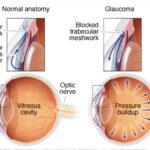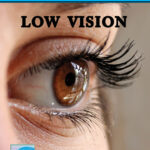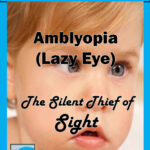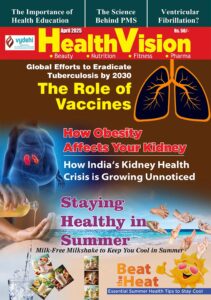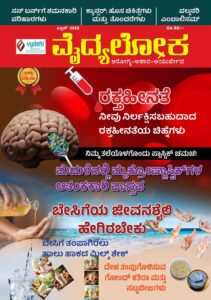Worsening of eye disease risk due to covid lockdown has increased by 90% if treatment delayed by 3 months say experts. According to them efforts should be made to encourage patients to visit their doctors to prevent further worsening of their vision.
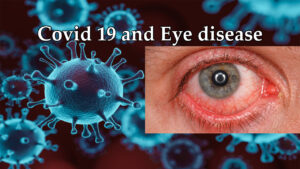

2. Some retinal diseases need special injections which only a doctor can administer.
3. Missing these injections could worsen the already poor vision and lead to blindness.
At a conclave organised by FICCI and Vision 2020 recently, experts deliberated on the challenges faced by patients suffering from eye diseases, due to the COVID-19 pandemic. Almost 35% of India’s elderly population is living with some form of visual impairment[1]. Majority suffer from eye ailments such as cataract, glaucoma or retinal diseases, that could lead to blindness, if not diagnosed or treated in time.
One of the key reasons of blindness is retinal diseases like Age-related Macular Degeneration (AMD)among elderly and Diabetes Macular Edema (DME) in patients suffering from diabetes. A diabetic patient is 25 times more vulnerable towards the possibility of getting blind as compared to a healthy individual.
The COVID-19 lockdown has forced patients to miss their doctor appointments for almost 4 months, now. This could add to India’s burden of blind population, which is 4.8 million[2]. As per the National Blindness and Visually Impaired Survey 2019, most cases of blindness (92.9%) and visual impairment (96.2%) in India, are due to avoidable or preventable causes.
Anti – VEGF treatment in the Insurance cover:
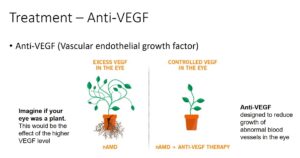

According to Dr Ratna Devi, CEO & Co-founder of Dakshama Health and Education and founder CRISP, “A patient survey conducted by patient group, CRISP (Community of Retina India, Support to Patients) highlighted that 9 out of 10 patients, even those on medications, have missed their doctor’s appointment due to the COVID lockdown. Further, 82% patients said that even after the lockdown eases, they would be worried visiting the doctor due to fear of contracting COVID. This is a worrying trend and efforts should be made to encourage patients to visit their doctors to prevent further worsening of their vision.”


Dr. Raja Narayanan, Hon. Secretary of VRSI (Vitreo Retina Society of India) says, “Treatment delayed by more than three months can increase the risk of worsening of eye disease & poor vision by 90%. Approximately 75% of patients are coming to us at an advanced stage of the disease, compared to the pre-lockdown scenario when advanced disease was found in 25% of patients. We are noticing a rapid surge in patients of retinal diseases like AMD and DME”.
Elderly patients who report functional vision problems (e.g. difficulty navigating steps or seeing objects in peripheral vision) are 90% more likely to be depressed, than patients who do not report such problems[3]. Older adults living with retinal diseases are also at a very high risk of accidental falls and other injuries[4].
Dr. Taraprasad Das, Regional Chair for South East Asia, International Agency for the Prevention of Blindness (IAPB) opines , “Elderly living with poor vision compensate for it through the sense of touch – physically leaning or seeking support to avoid falls, touching objects to identify the details appropriately, etc. thus exposing them more to the virus. A recently published study from the LV Prasad Eye Institute, Hyderabad (Scientific Reports, 2020) has also shown that the annual prevalence of all in elderly (over 69 years) is 29.1% and people with visual impairment have 1.5 times risk of fall compared to normal sighted people. The fear of infection has also made them defer and cancel their scheduled doctor appointments. As the lockdown eases patients should start going to the doctor, while following proper safety measures and social distancing norms.”
[1]Journal of Family Medicine & Primary Care
[2] National Blindness and Visually Impaired Survey 2019
[3]https://www.ncbi.nlm.nih.gov/pmc/articles/PMC4699633/
[4]Data driven by report of – Risk of Falls, Injurious Falls, and Other Injuries Resulting from Visual Impairment among Older Adults with Age-Related Macular Degeneration.




